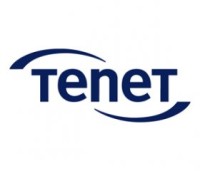Gov. Nathan Deal, in his annual State of the State address Wednesday, outlined several health care initiatives to boost mental health services, DFCS, Medicaid and autism coverage.

Deal said his fiscal 2018 budget proposal includes, on average, a 19 percent pay raise for DFCS caseworkers to help ensure “a competitive salary,’’ so the state can recruit and retain the best people for the job.
The Georgia agency, facing an increase in foster kids, continues to struggle with a high turnover rate among caseworkers who help these children, GHN reported recently.
DFCS is recruiting to fill about 170 positions for child welfare case managers, officials said last month. The turnover rate has been linked to low pay, high caseloads and burnout.
In his speech to the Georgia General Assembly, Deal cited a DFCS case manager, Michelle Dorris, as a worthy example of public service. Dorris helped save the life of a South Georgia infant during a medical emergency, Deal said.
Deal unveiled a record $25 billion spending plan for fiscal 2018, which begins July 1.
He also cautioned lawmakers not to take “giant leaps’’ on state health care policy until the U.S. Congress acts on Medicaid and the Affordable Care Act. Republicans who control Congress, along with Donald Trump, who becomes president next week, have pledged to repeal the ACA.

Deal said in his address that his budget plan would include about $2.5 million to expand children’s mental health services under Medicaid and PeachCare. Currently, he said, that coverage is only available to children of age 4 and older. It would be extended to younger children under Deal’s proposal.
Deal also advocated that mental health services be improved for military veterans. “They have given of themselves to protect us,’’ Deal said in his address. “It is only fitting that we should protect them in kind.”
In recent years, the nation has seen wars and frequent overseas deployments of troops, and Deal said nearly one in four active-duty service members show signs of some mental health condition. The budget blueprint will include funding to train employees on veterans’ services provided by the state and federal governments.
Deal said this and other measures will supplement the $3 million in bonds included in the current budget for a rehabilitation facility for veterans with traumatic brain injuries or post-traumatic stress disorder. Deal said another $3 million in bonds is included in his budget for the construction cost of this facility.
As expected, Deal pushed for the renewal of the hospital provider fee, which would plug a large hole in the state’s Medicaid budget. The funding would help draw more than $600 million from the federal government.

“If that authority is not renewed, the more than $900 million dollars now available to us for the Medicaid program will have to be made up elsewhere in our allocations,’’ Deal said. “Therefore, I encourage you to reauthorize the authority expeditiously so that we do not have to take away from other portions of the budget.”
The budget plan contains $17.9 million to raise Medicaid pay for primary care doctors and OB/GYNs. “Without adequate funding for our physicians, we will not be able to maintain the proper quality of providers in our Medicaid program,” Deal said.
And the governor said he aims to enhance coverage for autism treatment in Medicaid and the State Health Benefit Plan for those up to age 21, with $20.8 million set aside for this proposal.

Funding for the doctor pay, autism and children’s mental health coverage comes from the government settlement with Tenet Healthcare, according to Deal’s proposed budget. A fraud case settlement required Tenet to pay the Georgia Medicaid program a $110 million penalty. The money is part of Tenet’s payment of more than $513 million to settle the case of Medicaid fraud involving some metro Atlanta hospitals. Tenet no longer operates any hospitals in the state.
The budget also calls for millions of dollars in state funding to add “waiver’’ slots so that more Georgians with disabilities can be served in community settings.
The Georgia Council on Aging on Wednesday praised Deal for including $4.2 million in new funding for a program that covers home modifications and a myriad of other services for seniors, including home-delivered meals, adult day care, and respite care.
The governor earmarked $750,000 in additional funding for meals to fight senior hunger. “We applaud the governor for listening to our seniors,” Vicki Johnson, chair of the Georgia Council on Aging, said in a statement.

“This age group continues to grow dynamically in Georgia; in fact, we have the 11th-fastest-growing senior population in the nation. Our waiting lists are long; thousands of our seniors and their caregivers need these services,” she added.
Deal, citing the current opioid drug epidemic, said he wants the Legislature to write into law his recent emergency rule allowing naloxone, a drug used to reverse opioid overdoses, to be dispensed over-the-counter by pharmacists across the state.
He also urged lawmakers to strengthen the state’s prescription drug monitoring program. Opioids include some prescription painkillers as well as heroin.

